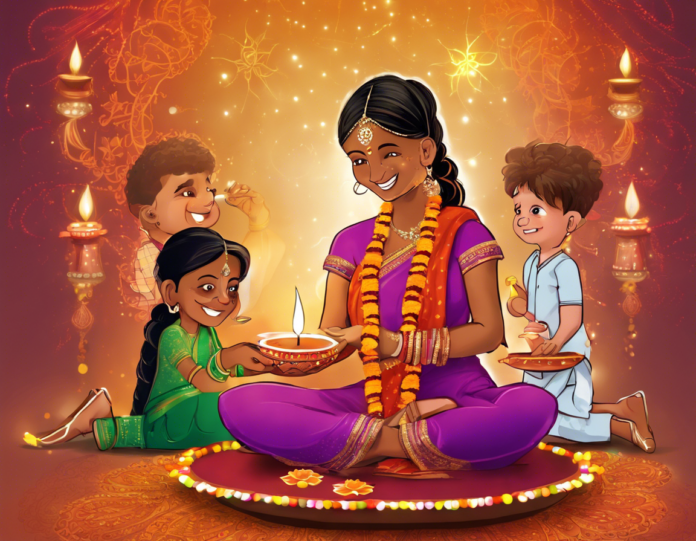Introduction:
Diwali, also known as Deepavali, is one of the most significant festivals in India, celebrated by millions of people across the country and around the world. It holds a special place in the hearts of Hindus, Jains, Sikhs, and Buddhists, marking different historical events and legends specific to each faith. The word “Diwali” is derived from the Sanskrit word “Deepavali,” which means a row or series of lights.
Historical Significance:
The Legend of Lord Rama: One of the most popular stories associated with Diwali is the return of Lord Rama, along with his wife Sita and brother Lakshmana, to Ayodhya after 14 years of exile and his victory over the demon king Ravana. The people of Ayodhya lit rows of lamps to welcome them back, symbolizing the victory of light over darkness and good over evil.
The Legend of Goddess Lakshmi: In some regions, Diwali is associated with the worship of Goddess Lakshmi, the goddess of wealth and prosperity. It is believed that she visits homes that are clean and well-lit, bringing wealth and happiness to the household.
The Legend of Narakasura: In South India, Diwali is celebrated as the day when Lord Krishna defeated the demon Narakasura and freed 16,000 captive princesses. This victory symbolizes the triumph of righteousness and the victory of light over darkness.
Celebrations and Traditions:
Decorations: One of the key aspects of Diwali is the adornment and decoration of homes and public spaces. People clean and decorate their homes with rangoli patterns, diyas (oil lamps), candles, and lights to welcome blessings and prosperity.
Fireworks: Fireworks are an integral part of Diwali celebrations, symbolizing the joyful mood of the festival. However, there is a growing awareness of the environmental impact of fireworks, leading to calls for more eco-friendly celebrations.
Sweets and Gifts: Exchanging sweets and gifts is a common practice during Diwali. Families and friends exchange traditional sweets like laddoos and barfis and give gifts to express love and goodwill.
Puja and Rituals: Diwali is a time for prayer and ritual ceremonies. Families gather for Lakshmi Puja to seek the blessings of Goddess Lakshmi for wealth and prosperity. People also perform Govardhan Puja and Bhai Dooj, depending on their regional customs.
FAQs about Diwali:
1. What is the significance of lighting lamps during Diwali?
Answer: Lighting lamps during Diwali symbolizes the victory of light over darkness and good over evil. It is believed to ward off evil forces and bring prosperity and happiness into the home.
2. What are some traditional sweets prepared during Diwali?
Answer: Some popular traditional sweets prepared during Diwali include Gulab Jamun, Jalebi, Rasmalai, Kaju Katli, and Sohan Papdi.
3. How long does the celebration of Diwali last?
Answer: Diwali is typically a five-day festival starting from Dhanteras and culminating in Bhai Dooj. Each day has its own significance and customs.
4. Why is rangoli made during Diwali?
Answer: Rangoli is made during Diwali to welcome Goddess Lakshmi into the home and to ward off evil spirits. It is also a way to decorate and beautify the surroundings.
5. Is Diwali only celebrated in India?
Answer: While Diwali is predominantly celebrated in India, it is also observed in various countries around the world where there is a significant Indian diaspora. Countries like Nepal, Sri Lanka, Malaysia, Singapore, and the United Kingdom also celebrate Diwali.

